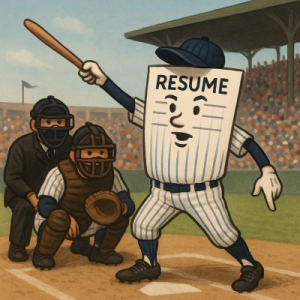
Because a recruiter is someone whose job it is to connect applicants with available job openings, their opinion will carry more weight when it comes to your resume. One thing you need to remember about recruiters is that they technically work for the companies and employers who hire the applicants. Some recruiters deal with a core group of employers. As such, some recruiters get accustomed to working with resumes that work best for their clients. The problem is that sometimes when offering advice to others, they communicate to those they are advising what they know for their own situations. At times they neglect to take into account how you might be conducting your search. Now, this is not always the case, but I have found that this does occur every now and again.
Let’s consider the situation. When a recruiter forwards your resume to the hiring authority, it has already been pre-screened to weed out unqualified and higher risk candidates. As such, what the hiring authorities usually like to see are more detail since they will have fewer resume to go through. The issue is that sometimes the recruiter advises the job seeker to do the same. But at times, this doesn’t take into account a more traditional job search that finds the resume as one among hundreds of others.
Whenever you approach a recruiter for advice on your resume, be sure you ask them to consider your entire search strategy, not just whether or not you are working with someone with their skill set. Recruiters, like the rest of us, tend to look at things from our own perspective if not prompted to do otherwise. But all in all, a good recruiter’s input can be valuable in finding out how employers think.



































